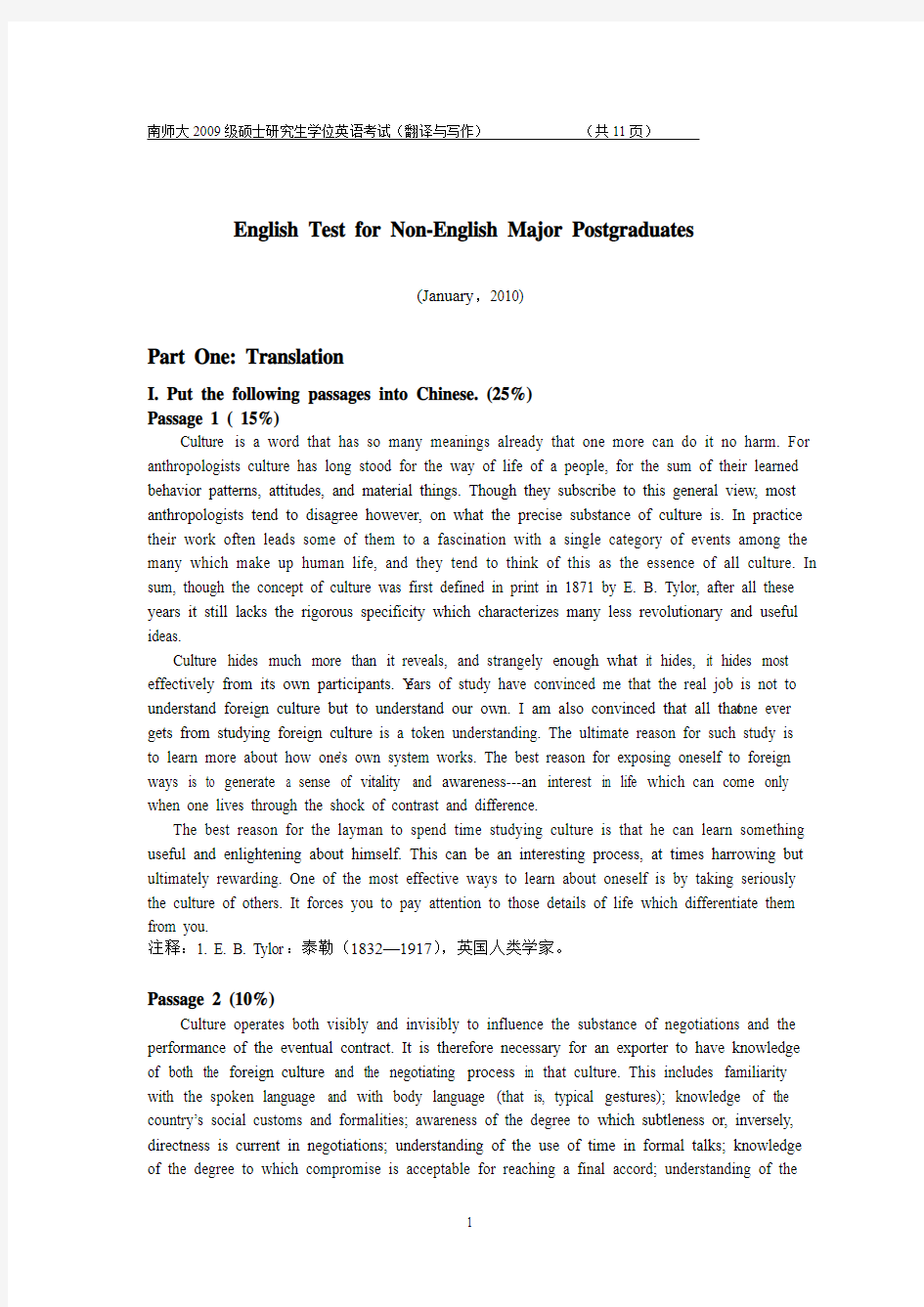09翻译写作试卷

- 1、下载文档前请自行甄别文档内容的完整性,平台不提供额外的编辑、内容补充、找答案等附加服务。
- 2、"仅部分预览"的文档,不可在线预览部分如存在完整性等问题,可反馈申请退款(可完整预览的文档不适用该条件!)。
- 3、如文档侵犯您的权益,请联系客服反馈,我们会尽快为您处理(人工客服工作时间:9:00-18:30)。
南师大2009级硕士研究生学位英语考试(翻译与写作)(共11页)
English Test for Non-English Major Postgraduates
(January,2010)
Part One: Translation
I. Put the following passages into Chinese. (25%)
Passage 1 ( 15%)
Culture is a word that has so many meanings already that one more can do it no harm. For anthropologists culture has long stood for the way of life of a people, for the sum of their learned behavior patterns, attitudes, and material things. Though they subscribe to this general view, most anthropologists tend to disagree however, on what the precise substance of culture is. In practice their work often leads some of them to a fascination with a single category of events among the many which make up human life, and they tend to think of this as the essence of all culture. In sum, though the concept of culture was first defined in print in 1871 by E. B. Tylor, after all these years it still lacks the rigorous specificity which characterizes many less revolutionary and useful ideas.
Culture hides much more than it reveals, and strangely enough what it hides, it hides most effectively from its own participants. Y ears of study have convinced me that the real job is not to understand foreign culture but to understand our own. I am also convinced that all that one ever gets from studying foreign culture is a token understanding. The ultimate reason for such study is to learn more about how one’s own system works. The best reason for exposing oneself to foreign ways is to generate a sense of vitality and awareness---an interest in life which can come only when one lives through the shock of contrast and difference.
The best reason for the layman to spend time studying culture is that he can learn something useful and enlightening about himself. This can be an interesting process, at times harrowing but ultimately rewarding. One of the most effective ways to learn about oneself is by taking seriously the culture of others. It forces you to pay attention to those details of life which differentiate them from you.
注释:1. E. B. Tylor:泰勒(1832—1917),英国人类学家。
Passage 2 (10%)
Culture operates both visibly and invisibly to influence the substance of negotiations and the performance of the eventual contract. It is therefore necessary for an exporter to have knowledge of both the foreign culture and the negotiating process in that culture. This includes familiarity with the spoken language and with body language (that is, typical gestures); knowledge of the country’s social customs and formalities; awareness of the degree to which subtleness or, inversely, directness is current in negotiations; understanding of the use of time in formal talks; knowledge of the degree to which compromise is acceptable for reaching a final accord; understanding of the
